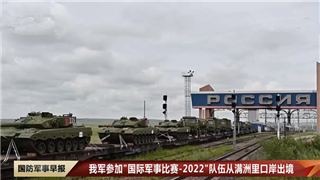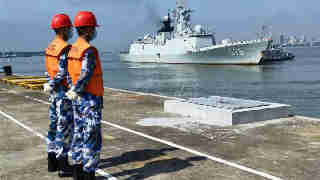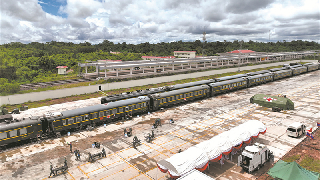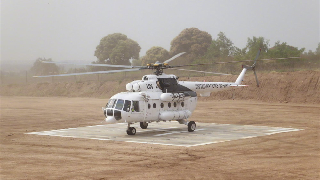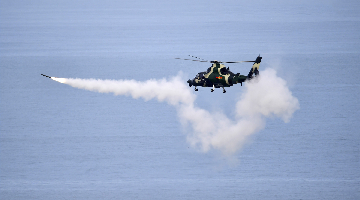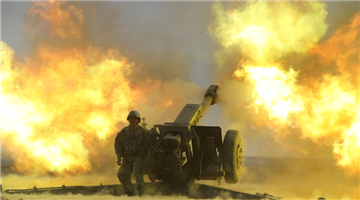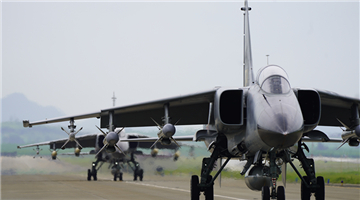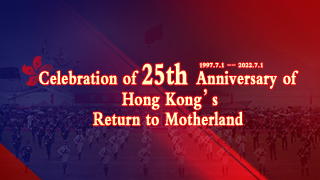Editor's note: To celebrate the 100th founding anniversary of the founding of the Communist Party of China (CPC), we are launching the “Outstanding CPC Military Members” series, featuring exemplary military communists who have dedicated themselves to defending the country, serving the people and strengthening the army. The following is the third story of the series.
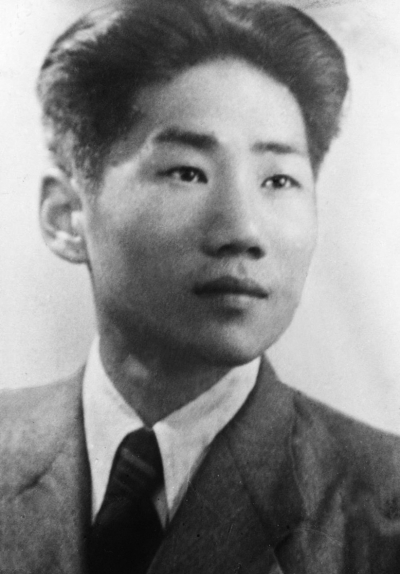
In the Martyrs Cemetery of the Chinese People's Volunteers (CPV) in Hoechang County, South Pyongan Province, the Democratic People’s Republic of Korea (DPRK), a one-meter-high granite stone stands in front of a grave, with the front being engraved with "Martyr Mao Anying's Mausoleum". Mao Anying, the eldest son of late Chinese leader Mao Zedong, sacrificed his life with bravery in the War to Resist US Aggression and Aid Korea on November 25, 1950.
Mao Anying was born in Changsha, the capital city of Hunan Province, in 1922, and moved to Shanghai, Guangzhou, Wuhan and other places with his parents when he was young. On October 24, 1930, Mao Anying and his mother Yang Kaihui were arrested and imprisoned. After his mother was killed by the Kuomintang reactionaries, Anying was rescued from the prison and transferred to Shanghai under the arrangements of the CPC organizations. In 1931, the CPC’s underground organizations in Shanghai were severely damaged by the Kuomintang reactionaries, Anying became homeless and wandered in the streets, going through hardships as he had apprenticed in biscuit-baking stand and worked as a ragman, news vendor, and rickshaw driver.
In 1936, the CPC underground organizations arranged Mao Anying to study in the Soviet Union, where he ever studied in the Lenin Military and Political School and the Frunze Military Academy, and later participated in the Great Patriotic War of the Soviet Union.
In late 1945, Mao Anying returned to China and went to Yan'an in January 1946 and joined the CPC. Mao Zedong required him to take part in farming practices in village, where he slept on heatable adobe sleeping platform, eat roughage, and did farm work the same as the peasants. He was always strict with himself and went deep among the masses, whether it was during the War of Liberation when participating in the land reform work in rural areas, or in the early days of the People's Republic of China, when acting as the deputy secretary of the Party committee in the factory.
In 1950, with the breakout of the War to Resist US Aggression and Aid Korea, newly-married Mao Anying joined the CPV and served as a Russian language interpretor and secretary at the CPV Headquarters. He worked with enthusiasm, earnest and responsibility, and quickly became familiar with his work.
On the morning of November 25, 1950, four P-51 Mustang fighter-bombers of the US Air Force suddenly flew over the Headquarters of the CPV and dropped dozens of napalms. The operational room where Mao Anying was working was bombed and caught fire. Mao Anying laid down his life at the age of 28.
When the news came back to China, Mao Zedong, exerting all his strength to hold back the excruciating pain, said slowly, "There’s no doubt to have people sacrificed in a war. So many CPV soldiers have sacrificed their lives, and their sacrifices are glorious. As an ordinary soldier, Anying is but one of them. You don't have to treat it so serious just because he is my son." Mao Anying was the sixth member of Mao Zedong's family who had made the ultimate sacrifice for the revolutionary cause of the Chinese people.
Mao Anying was elected as one of the "100 People Who Moved China Since the Founding of the People's Republic of China" in 2009, and was honored as one of the 300 " Most Beautiful Strivers" in 2019.
